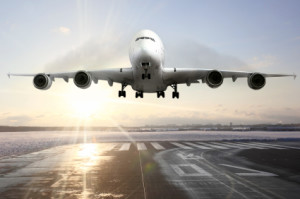 Big recent changes in frequent traveler programs mean that it’s time to rethink your loyalties.
Big recent changes in frequent traveler programs mean that it’s time to rethink your loyalties.
Delta just switched to a frequent flier program that rewards customers based on amounts spent, rather than miles flown. United plans to do the same starting March 1. American will continue to reward based on miles flown, but once its merger with US Airways is completed most fliers will have to pay or use points for upgrades.
If you’re an elite frequent flier who spends a ton on tickets (or whose company spends tons on your behalf), you might be content to stay put. Most other travelers, though, should at least review other options if they’ve been trying to build miles in those programs.
It still makes sense to concentrate most of your business with one airline so you build up miles faster. If it’s hard for you to do that, then consider a frequent traveler program that allows you to more flexible by:
- Having an extensive network of partners (like Alaska Airlines, which partners with both Delta and American and that has at least one partner in every airline alliance)
- Using a rewards credit card that allows you to use points in different programs (like American Express’ Member Rewards, which lets you transfer points to Delta, Continental, Virgin Atlantic and British Airways, among others) or that has rewards that can be used like cash for tickets (such as Capital One’s Venture, with its “purchase eraser” feature for travel costs).
When you’re thinking about what loyalty programs to use, sometimes it helps to work backward starting from where you want to go. If you want free flights to Hawaii, for example, American and Hawaiian Airlines are two good options, at least from the West Coast. You could rack up miles on American itself and/or use the American-branded credit card, or apply for a new British Airways card to get the start-up bonus (currently 50,000 points after spending $2,000 in the first three months) and transfer those points to American. Or you could concentrate your flying on JetBlue, which has a relationship with Hawaiian, and your spending on the JetBlue American Express card.
If you don’t have a specific goal but fly mostly domestically in coach seats, consider JetBlue, Southwest and Virgin Atlantic, which typically get high marks from travelers for relative comfort and amenities. All three base rewards on dollars spent, but they don’t have the blackout dates and other restrictions that can make redeeming rewards hard in other airline programs. If a seat doesn’t already have somebody in it, in other words, you can book it with rewards.
Another tip: Check in occasionally with frequent flier blogs, which can alert you to hot deals and ways to earn extra points.
While cars no longer require traditional tune-ups, your finances still do. This month I’ll be reviewing some areas of your money that deserve some extra scrutiny and offering suggestions for the best moves now. Stay tuned for more posts–and to make sure you don’t miss any, you can sign up for my newsletter using the link on my home page.
